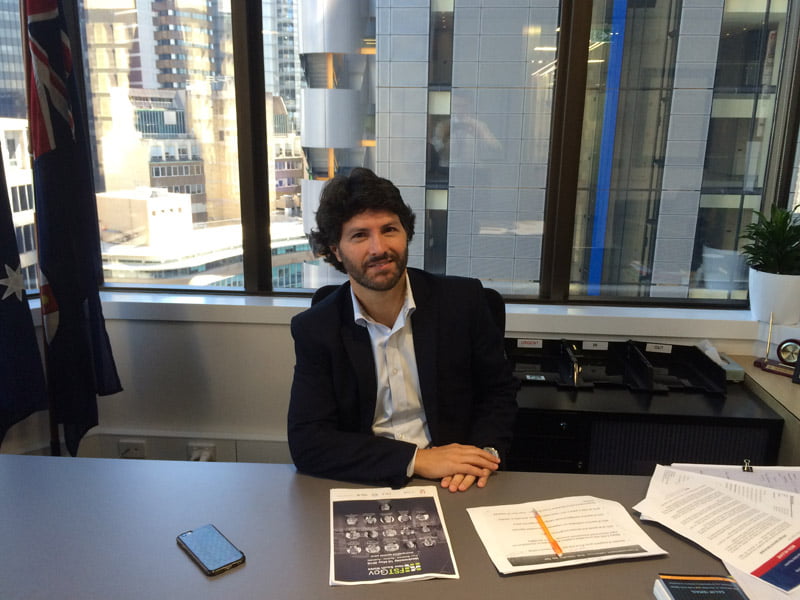The NSW Government has launched a raft of new engagement plans and procurement models as the central components of its just-released NSW Innovation Strategy.
The new initiative includes the creation of a new ‘Innovation Concierge Service’ to make it easier for companies and individual innovators to approach government with ideas and pitches.
It also proposes Shark Tank-style panel of experts to be used that departments and agencies to reality-check project work.

The state has also expanded programs that provide seed funding to innovators that come up with specific solutions that solve a problem. It has broadened its competitive ‘challenge’ approach to procurement.
Launched jointly by NSW Minister for Innovation Victor Dominello and Industry, Resources and Energy Minister Anthony Roberts, the strategy also includes a dramatically expanded commitment to the ‘regulatory sandbox’ concept.
Speaking at an Australian Information Industry Association luncheon in Sydney on December 1, Mr Dominello said the regulatory sandboxes had already been used in financial services to provide a ‘safe harbour’ top test products.
“But we want to push the boundaries and apply this concept to other areas – with the focus being on the areas that will make a biggest difference,” Mr Dominello said.
“By helping organisations experiment, we can rapidly adapt to disruption, and unlock economic and social opportunities.”
“We are asking people to tell us if there are regulatory barriers to innovation in AgTech, blockchain, HealthTech, EnergyTech, social innovation or anywhere else.”
The department is already accepting submissions through the Innovation NSW website.
Literally, if there is a regulation that an innovator believes is getting in the way of a smart solution to a problem, Mr Dominello said the government wants to hear about it.
Governments across Australia have been experimenting with new engagement policies that aim to make it easier for private sector ideas and innovation to get inside the public service.
This is especially the case with the Commonwealth, where Assistant Minister Angus Taylor talks about making government more porous. And NSW is a leader in this area. The idea is that the strict formalities of government procurement have become a barrier to innovative solutions.
The experiments are an attempt to lower the cost of entry for new ideas to reach into government, without lowering the overall oversight and probity safeguards.
Mr Dominello’s NSW Innovation Concierge service – he’s calling it ‘the NIC’ – is an experiment in reshaping the interface to government for innovators. He used the AIIA speech to launch the service as a beta, which he says will make the engagement with stakeholders more like Service NSW.
“The Concierge is a way for individuals and organisations to ask questions about innovation and government and submit proposals for government to be more agile,” Mr Dominello said. “Importantly feedback will be given on ideas, and in the same way you can track a parcel and see where it is on its journey, we’re aiming to achieve a similar level of service.”
“Timing is key and people should be able to see how their ideas are progressing inside government, rather than going into a mysterious void.”
Mr Dominello has also broadened the Procurement Innovation Stream that is supposed to make it easier to buy from small companies. The changes see the upper limit for the scheme lifted from $250,000 to $1 million.
“That change will enable an agency to undertake a proof of concept trial or outcomes-based procurement with an SME covering procurements up to $1 million,” he said. “
This was a big policy statement and includes new measures to improve the interoperability of new government services between jurisdictions.
The NSW Government has already been working closely with the Commonwealth on service delivery issues, and has now established a partnership group with the City of Sydney.
The changes are big enough and broad enough to require high level political patronage to ensure the policy translates to outcomes.
Part of the strategy includes the creation of a Ministerial Innovation Council – ‘the MIC’ – made up of the ministers for Skills, Trade, Innovation and Industry.
That is a council made up of deputy premier and minister for regional development, small business and skills John Barilaro; the minister for trade, tourism and major events Stuart Ayers; the minister for innovation and better regulation; and the minister for industry, resources and energy Anthony Roberts.
Do you know more? Contact James Riley via Email.

